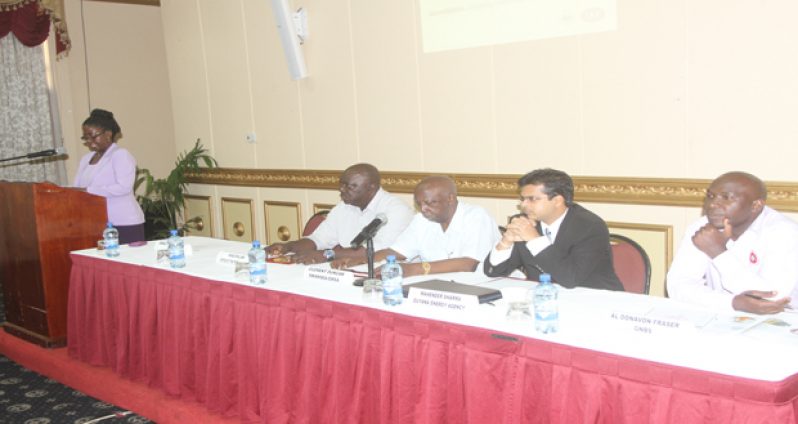CHIEF Executive Officer of the Guyana Energy Agency (GEA), Dr. Mahender Sharma is appealing to persons to be more ‘energy conscious’ since there are obvious financial, environmental and marketing benefits to be had from responsible and reduced energy use.
He said “reducing energy means that you can make more financial resources available for other areas of development.”
According to Dr. Sharma, such environmental benefits include a reduction in the emissions associated with fossil fuel used for electricity generation, a reduction in Carbon dioxide (CO2) and other emissions and further recognisable reductions in the need for transmission and the delivery of energy, which results in a reduced demand placed on the national power grid, resulting in the conservation of natural resources like fossil fuels and other non-renewable fuels used for energy generation by the power company.
From utilities like Guyana Power and Light (GPL) perspective, it means that they do not need to invest more generating capacity and are using the units of energy more wisely, so the time for adding new generation can be delayed, Dr. Sharma said.
He was speaking yesterday during the World Accreditation Day Symposium hosted by the Guyana National Bureau of Standard (GNBS), at the Pegasus Hotel in Kingston, Georgetown. The occasion was being observed under the theme ‘Accreditation: Delivering confidence in the provision of energy.’
Those at the head table at the opening of the symposium included Chief Executive Officer (CEO) of Swansea Industrial Associates, Mr. Clement Duncan; CEO of the Hinterland Electrification Unit of the Office of the Prime Minister, Mr. Horace Williams; Head of the Conformity Assessment Department of the Guyana National Bureau of Standards (GNBS), Ms. Candelle Walcott-Bostwick and the GNBS Technical Officer, Mr. Al Donavan Fraser.
Sharma, in his presentation, noted that energy assessments are essentially the ability to measure the figures relating to consumption, which enables the receivers of such audits to adopt interventions that could potentially reduce what is consumed.
He said that the vision of the GEA is “to ensure that reliable energy is provided within an economically, environmentally and socially sustainable framework.”
According to him, the agency has continued to provide advice and recommendations, in light of increasing consideration for renewable sources of energy, to the Ministry of Energy, which operates within the Office of the Prime Minister.
ALL STAKEHOLDERS
Such advice as regards to measures of securing the efficient management of energy and sources of it in the interest of all stakeholders with the intention of developing and encouraging development and utilisation of other sources of energy other than the conventional ones.
Dr. Sharma said the energy assessments conducted by his agency are meant to assess the consumption of identified facilities, evaluate the most effective measures which can be adopted for reducing excess energy usage and increased savings and profits.
The decrease in the amount of money spent on fuel and electricity comes as a result of achievements in a reduction in the demand for energy when the consumer reduces consumption, he pointed out.
He bemoaned the fact that some consumers are of the misconception that energy refers only to electricity and explained, however, that “energy is the fuel that you put into your vehicles, [and] it is also the fuel that you see when you turn on your stove to cook.”
Acknowledging the comprehensive effects of being energy conscious, Sharma identified the financial, environmental and marketing benefits of such responsible practices.
Alluding to the financial benefits, Dr. Sharma contended that consumers and plant managers would see reduced expenditure on energy, reduced operating costs and even less maintenance costs, capital expenditure with a conversely appreciative increase in profits.
He urged companies and manufacturing facilities to become more energy conscious since “being energy efficient makes the company socially responsible and allows for [approval of the firm by means of] accreditation.
Such accreditation aids in achieving recognition as being environmentally responsible and a good corporate citizen, while significantly reducing the cost of production and improving production efficiency.
Written By Derwayne Wills



.jpg)








